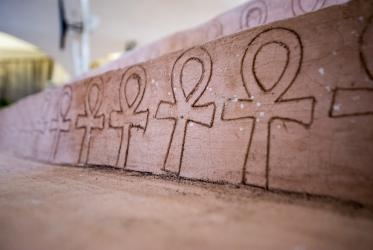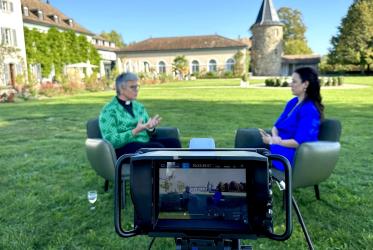The WCC Faith and Order Commission undertook a study of 19 examples to understand better what actually occurs in these processes of change with regard to moral teaching. In the webinar on 27 May key findings were presented and discussed.
Prof. Dr Myriam Wijlens, University of Erfurt (Germany), who moderated the webinar, invited Rev. Dr Morag Logan, Melbourne (Australia), to explain how the topics were selected. Logan said: “We wanted to look into historical examples that help us to study the ways in which the sources for moral discernment in the churches and the respective procedures play a role in arriving at different conclusions. We wanted to understand how change and continuity relate.”
Dr Antigone Samellas presented how over time Roman Catholics, Orthodox and Reformed understanding of usury changed so that they actually came to hold similar positions, but at the same time, their reasoning differed substantially.
That change is not always a change for the better came to fore in the study on apartheid. Prof. Dr Dirk J. Smit, Stellenbosch University (South Africa) and Princeton Theological Seminary (USA), outlined how apartheid was introduced and legitimized theologically. At a later stage, again on theological grounds, a serious reconsideration took place and contributed to the end of apartheid.
Rev. Dr Hermen Shastri, general secretary, Council of Churches of Malaysia, described how context plays a decisive role in the change with regard to interfaith marriages in the Methodist Church of Malaysia. “From early on these marriages were encouraged because they might present missionary opportunities, whereas later they were forbidden to protect the community.”
While reflecting on change and continuity, Prof. Dr Bernd Oberdorfer, University of Augsburg (Germany), underlined: “‘Change’ rather implies that a church, confronted by a specific challenge, asks anew what the will of God is, reflects anew its doctrinal traditions in the light of the Holy Scripture. Thus, ‘change’ is rooted in a fundamental continuity.”
Watch the first webinar of the series “Moral discernment – What can we learn from other traditions?”





